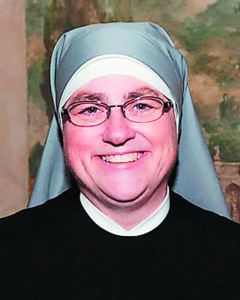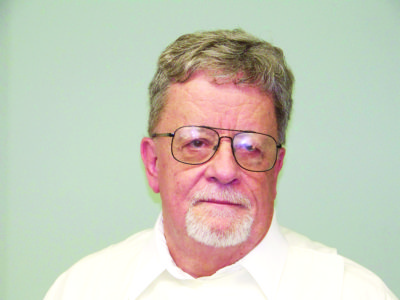KNEADING FAITH
By Fran Lavelle

Fran Lavelle is the Director of Faith Formation for the Diocese of Jackson
I recognized early on in my role at the chancery that I was not a typical diocesan director for formation and religious education. I have been a catechist, but never directed a religious education program. For certain, there were many things that I didn’t know and committed myself to learning. What I did know, having spent many years in youth and college ministry, was that we are witnessing a paradigm shift in how young people articulate and witness their faith. One piece of wisdom I have gained over the years is the importance of listening to people to understand where they are. I truly believe young people are speaking their truth to us in the Church, but we have not been great at “hearing” what they are telling us.
Out of pure curiosity or perhaps a prompting of the Holy Spirit, I asked Bishop Kopacz if he would share the letters he received from the confirmadi as I was interested in “listening” to what our young people of faith are telling us. What became apparent regardless of demographics of the parish or what program the parish used is that our young people are struggling to reconcile the faith they have been taught with the world they live in. Reading over the letters I was struck by their honesty and sincerity.
For the most part, the tone of the letters are casual as if they are writing a good friend. Many express their doubts, fears and inadequacies. Even those with the greatest doubt in God or themselves ask for the sacrament. After reading their letters, I felt a deep desire to do something that would help allay theirs fears and create a conversation about, if not normalize, their doubt. I realized I was being called to write a confirmation preparation program based on the letters and using the curriculum for Confirmation in The Catechist Companion, a curriculum guide for catechesis and religious education.
The program takes its name from the genesis of this work, Letters to a Bishop: The Journey to Confirmation. What became abundantly clear with the prompting of the Holy Spirit is that the work of catechesis is organic. We are all being lead to think, reflect and respond to the Spirit in our ever-changing world. Development of the Confirmation preparation program is a candid reminder to always and in all ways, be open to what the Spirit is calling us to.
The word confirmation is from the Latin confirmare which means “to strengthen” or “to establish.” What is strengthened in the sacrament are the graces we received at Baptism through the Holy Spirit. There are, in fact, very few requirements laid out in Canon Law that speak to what is necessary for the sacrament to be administered.
The primary requirement is that the individual, free from impediments that would prevent reception of the sacrament, asks for the sacrament. The secondary requirement is that the pastor and others have the responsibility to worthily prepare those who ask for the sacrament.
Can. 843 §1 Sacred ministers may not deny the sacraments to those who opportunely ask for them, are properly disposed and are not prohibited by law from receiving them.
§2 According to their respective offices in the Church, both pastors of souls and all other members of Christ’s faithful have a duty to ensure that those who ask for the sacraments are prepared for their reception. This should be done through proper evangelization and catechetical instruction, in accordance with the norms laid down by the competent authority.
It is in the latter requirement that we find the greatest variance in sacramental preparation. Our diocesan sacramental preparation directives in the Catechist Companion communicate the nine areas that should be included in the curriculum. The first area is scripture which does not have specific curriculum guidelines. In developing the confirmation program for our diocese, I chose to insert scripture in the lesson plan for each session.
A session on human dignity was added bringing our total of sessions to nine. I felt strongly that a foundational understanding of our creation in God’s likeness and image was an important prerequisite. The remaining eight areas from the curriculum of the Catechist Companion are: tradition; the church as the faith community; morality: forming a Christian lifestyle; the reality of sin and the need for redemption; missionary initiation/service; the nature of the Paschal mystery; prayer; and liturgy and worship.
There is no requirement to use the confirmation program. If you currently have a confirmation preparation program that you love, keep using it. If, however, you would like to investigate trying something new, I encourage you to look at the program. I am hoping that some parishes will use it and provide feedback as to how it worked and what adjustments should be made to improve the program. A copy of the program is available to download from the diocesan website, www.jacksondiocese.org. If you are interested in implementing all or part of the program and would like to meet with me before the academic year gets underway, please contact me at: fran.lavelle@jacksondiocese.org.
(Fran Lavelle is the Director of Faith Formation for the Diocese of Jackson.)





